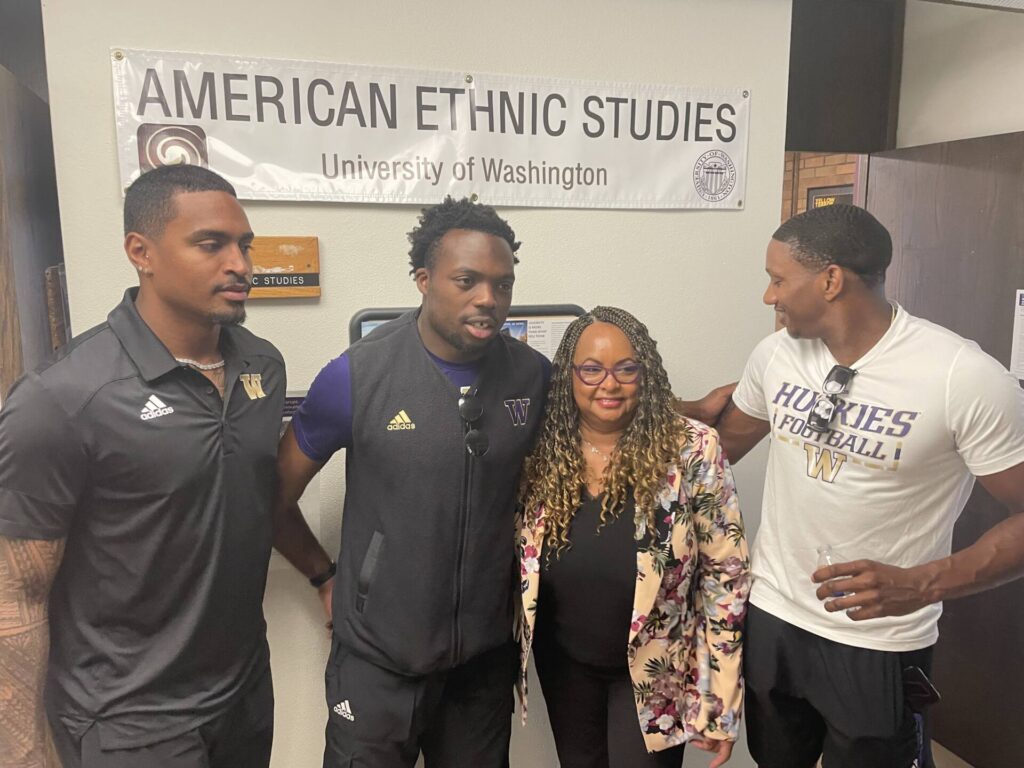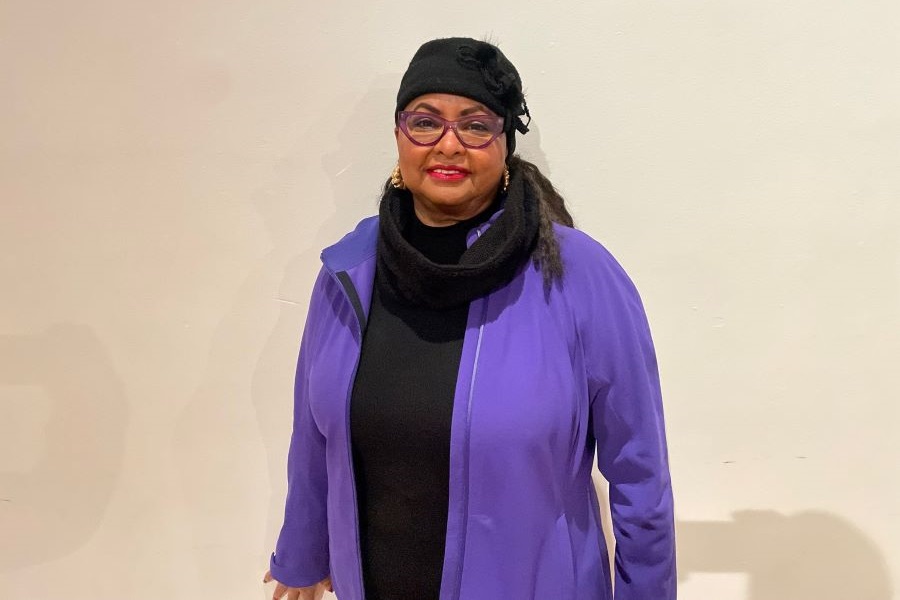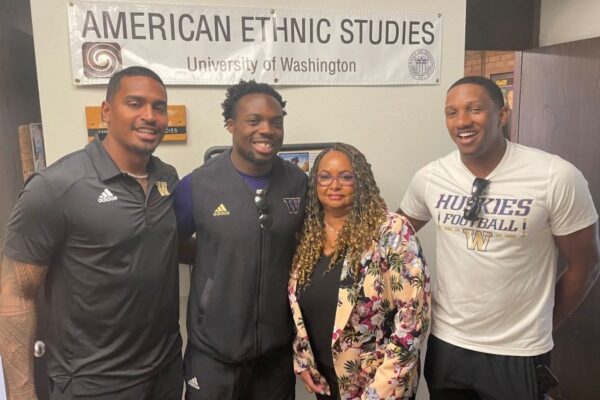Mentoring Isn’t What It Used To Be—And That’s a Good Thing
The Racial Equity Coalition is a group of 14 Black, Indigenous, and other community of color organizations funded by United Way of King County. Each Coalition member has launched its own after-school program to reinforce cultural identity by immersing students in lessons rooted in their own races, ethnicities, and heritage.
The Racial Equity Coalition believes the program will foster love and liberation for youth by cultivating a love for community, curiosity, and learning, and a liberation from a traditional education curriculum that often marginalizes communities of color and their cultures.
United Way occasionally spotlights Coalition members. This month we feature the 4C Coalition, a Seattle-based mentoring and support organization for youth of color. We sat down with 4C Coalition director Hazel Cameron to talk about the group’s origins and a mentoring program it hosts with the University of Washington football team. To hear her tell it, mentoring in general has changed—for the better.
United Way of King County: What are the origins of the 4C Coalition?
Hazel Cameron: I used to work for the state Juvenile Rehabilitation Administration. I did that for 10 years and I helped start one of the first mentoring programs, working with kids who were incarcerated. I helped develop the curriculum for the Juvenile Rehabilitation Administration and I trained people in all regions across the state.
At that time, I was in communities recruiting mentors for the Juvenile Rehabilitation Administration, and I was able to meet a lot of clergy and community members. Over time, the conversation came up that we need more Black mentors. Typically, the first mentors were white women and then white men, Black women, and Black men.
But now, that table has changed: There are more Black men stepping up to mentor. It’s been amazing.
That’s how 4C Coalition started: I got a phone call from a minister who runs a mentoring program in Kent. He asked if we were having a problem recruiting Black men. I said, “Absolutely. We all are.”
It was 1999; that was so far back in the day that we were faxing people at the time. But he and I strategized getting more Black men to mentor: We faxed pastors, called pastors, and told them we would like to start some type of coalition.
We reached out to more than 100 pastors throughout the Seattle area.
United Way of King County: What emerged from that?
Hazel Cameron: We met for five years in the basements of different churches throughout Seattle. We strategized, planned, and talked about the issues we were seeing—high school dropouts, suspensions, and violence in schools. Parents in the group came up with strategies such as walking the halls of schools like Garfield, seeing what’s going on, and being present.
That turned into conversations about other ways we could help our kids. There were several mentoring programs, including Big Brothers and Big Sisters, and one out of the juvenile detention center. We kept pushing mentoring as we said we could work with kids from foster care, with kids who are failing in school, kids who had been suspended, and kids living in single-parent households. Mentoring can cover such an array of issues. So, we decided to make mentoring our major focus.
United Way of King County: What does the 4C stand for?
Hazel Cameron: It stands for Clergy, Community, and Children-Youth Coalition. We were founded by about 30-35 clergy and community members.
United Way of King County: Now, you have a unique mentoring program with the University of Washington football team through Montlake Futures, an organization that supports the missions of nonprofit organizations by developing educational experiences for University of Washington student-athletes at those organizations. How did that partnership happen?
Hazel Cameron: We got a phone call from one of the UW professors here at the time who said some of the students were interested in getting out into the community. The students were from everywhere, California, Hawaii, and Florida, and they wanted to know about the city they were playing sports in. They asked the professor if they could be connected with a program. That was the beginning of our relationship. It’s been an amazing, phenomenal opportunity to work with these young men.
We didn’t know what was going to happen initially when they came in, but they came in just wanting to know who these kids were. A lot of those guys have gone through what the kids we are working with are going through—the struggles, parents who are not there, drug addictions—all the painful things we are seeing in our community with our young people, these guys have said they can make a difference.
We have a great team working with us at the university to make this happen. And the students receive college credits for this program. They have to show up, but they want to do it. Every year it gets bigger and bigger.

United Way of King County: How many mentees enroll in the program annually and how are they chosen?
Hazel Cameron: Up to 15 students come through the program each year. We work with Seattle Cares Mentoring Movement, which has a program called The Rising for Boys that prepares Black youth to succeed in school and life. That’s a three-year program; we work with students in sixth, seventh, and eighth grades.
When they come out of the Rising, they go to high school and into the 4C mentoring programs. The goal is for everyone to join our programs for ninth, 10th, and 11th grade. Initially, we didn’t know they would be interested in having mentors after middle school. But we have kids coming from such high schools as Garfield, Franklin, O’Dea, and even one high school in Spokane that has a kid from Seattle who moved there and wants to continue on Zoom.
United Way of King County: What has been the impact of the Racial Equity Coalition on your work?
Hazel Cameron: The Racial Equity Coalition has been a life-changing process for mentoring. I’ve been mentoring for so many years, and typically organizations struggle working together. It usually comes down to who’s getting funded and who’s not getting funded. What has happened with the Racial Equity Coalition is that it’s a playing field where we all work together. That is very rare and it’s a model that I would love to see duplicated.



Comments